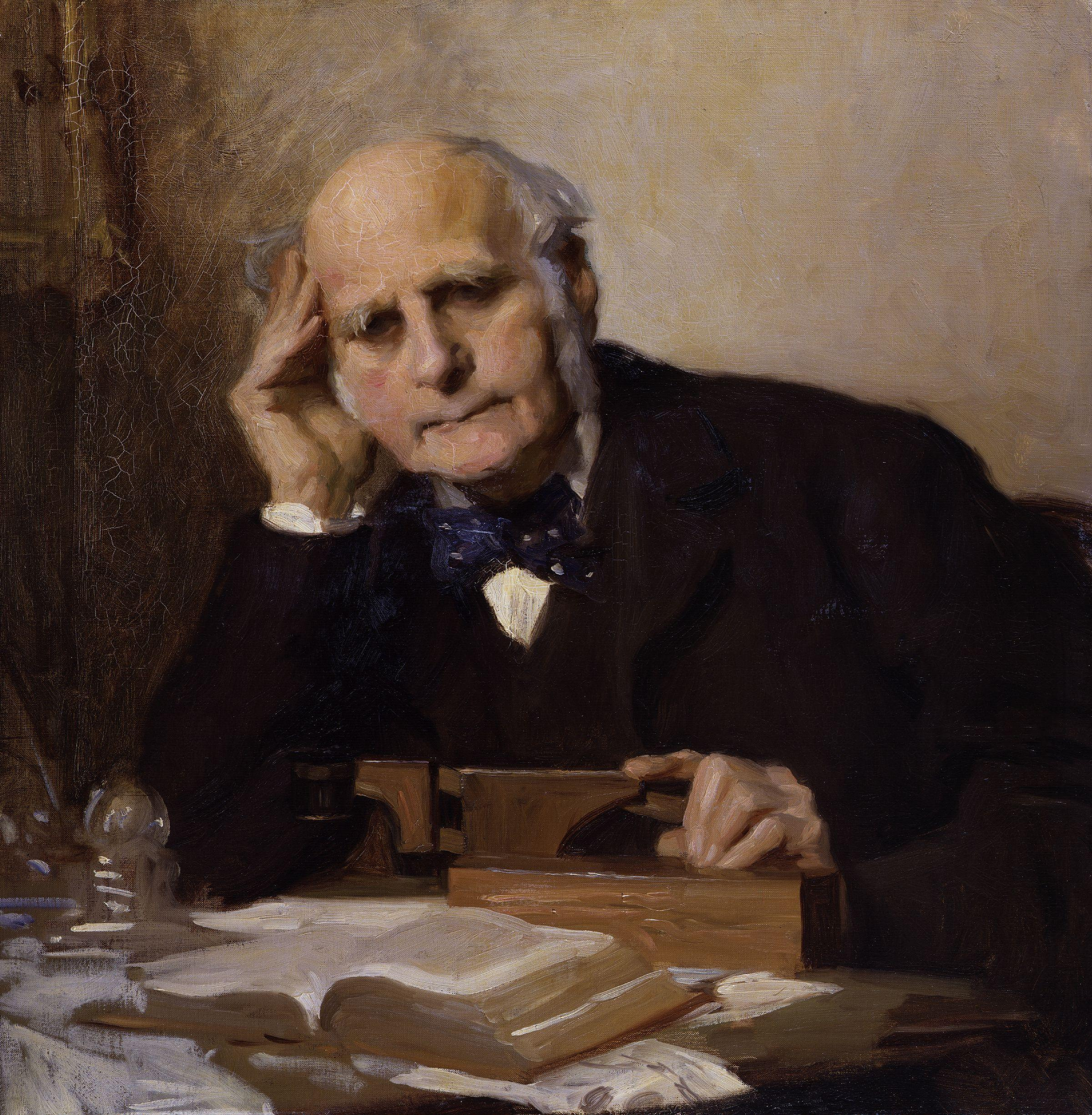|
Surprisingly Popular
The surprisingly popular answer is a wisdom of the crowd technique that taps into the expert minority opinion within a crowd. For a given question, a group is asked both "What do you think the right answer is?" and "What do you think the popular answer will be?" The answer that maximizes the average difference between the "right" answer and the "popular" answer is the "surprisingly popular" answer. The term "surprisingly popular" was coined in a 2017 paper published in ''Nature'' entitled "A solution to the single-question crowd wisdom problem", which outlined the technique. Example Suppose the question to be determined is: Is Philadelphia the capital of Pennsylvania? The two questions asked of the group, and the numbers of responses, are: : Is Philadelphia the capital of Pennsylvania? :* Yes: 65% :* No: 35% : What do you think most people will respond to that question? :* Yes: 75% :* No: 25% The difference between the answers to the ''right'' question and the ''popular'' questi ... [...More Info...] [...Related Items...] OR: [Wikipedia] [Google] [Baidu] |
Wisdom Of The Crowd
The wisdom of the crowd is the collective opinion of a diverse independent group of individuals rather than that of a single expert. This process, while not new to the Information Age, has been pushed into the mainstream spotlight by social information sites such as Quora, Reddit, Stack Exchange, Wikipedia, Yahoo! Answers, and other web resources which rely on collective human knowledge. An explanation for this phenomenon is that there is idiosyncratic noise associated with each individual judgment, and taking the average over a large number of responses will go some way toward canceling the effect of this noise. Trial by jury can be understood as at least partly relying on wisdom of the crowd, compared to bench trial which relies on one or a few experts. In politics, sometimes sortition is held as an example of what wisdom of the crowd would look like. Decision-making would happen by a diverse group instead of by a fairly homogenous political group or party. Research within cog ... [...More Info...] [...Related Items...] OR: [Wikipedia] [Google] [Baidu] |
Nature (journal)
''Nature'' is a British weekly scientific journal founded and based in London, England. As a multidisciplinary publication, ''Nature'' features peer-reviewed research from a variety of academic disciplines, mainly in science and technology. It has core editorial offices across the United States, continental Europe, and Asia under the international scientific publishing company Springer Nature. ''Nature'' was one of the world's most cited scientific journals by the Science Edition of the 2019 ''Journal Citation Reports'' (with an ascribed impact factor of 42.778), making it one of the world's most-read and most prestigious academic journals. , it claimed an online readership of about three million unique readers per month. Founded in autumn 1869, ''Nature'' was first circulated by Norman Lockyer and Alexander Macmillan as a public forum for scientific innovations. The mid-20th century facilitated an editorial expansion for the journal; ''Nature'' redoubled its efforts in exp ... [...More Info...] [...Related Items...] OR: [Wikipedia] [Google] [Baidu] |
Philadelphia
Philadelphia, often called Philly, is the largest city in the Commonwealth of Pennsylvania, the sixth-largest city in the U.S., the second-largest city in both the Northeast megalopolis and Mid-Atlantic regions after New York City. Since 1854, the city has been coextensive with Philadelphia County, the most populous county in Pennsylvania and the urban core of the Delaware Valley, the nation's seventh-largest and one of world's largest metropolitan regions, with 6.245 million residents . The city's population at the 2020 census was 1,603,797, and over 56 million people live within of Philadelphia. Philadelphia was founded in 1682 by William Penn, an English Quaker. The city served as capital of the Pennsylvania Colony during the British colonial era and went on to play a historic and vital role as the central meeting place for the nation's founding fathers whose plans and actions in Philadelphia ultimately inspired the American Revolution and the nation's inde ... [...More Info...] [...Related Items...] OR: [Wikipedia] [Google] [Baidu] |
Pennsylvania
Pennsylvania (; ( Pennsylvania Dutch: )), officially the Commonwealth of Pennsylvania, is a state spanning the Mid-Atlantic, Northeastern, Appalachian, and Great Lakes regions of the United States. It borders Delaware to its southeast, Maryland to its south, West Virginia to its southwest, Ohio to its west, Lake Erie and the Canadian province of Ontario to its northwest, New York to its north, and the Delaware River and New Jersey to its east. Pennsylvania is the fifth-most populous state in the nation with over 13 million residents as of 2020. It is the 33rd-largest state by area and ranks ninth among all states in population density. The southeastern Delaware Valley metropolitan area comprises and surrounds Philadelphia, the state's largest and nation's sixth most populous city. Another 2.37 million reside in Greater Pittsburgh in the southwest, centered around Pittsburgh, the state's second-largest and Western Pennsylvania's largest city. The state's su ... [...More Info...] [...Related Items...] OR: [Wikipedia] [Google] [Baidu] |
Harrisburg
Harrisburg is the capital city of the Pennsylvania, Commonwealth of Pennsylvania, United States, and the county seat of Dauphin County, Pennsylvania, Dauphin County. With a population of 50,135 as of the 2021 census, Harrisburg is the List of cities and boroughs in Pennsylvania by population, 9th largest city and 15th largest municipality in Pennsylvania. Harrisburg is situated on the east bank of the Susquehanna River. It is the larger principal city of the Harrisburg–Carlisle metropolitan statistical area, also known as the Susquehanna Valley, which had a population of 591,712 as of 2020, making it the Pennsylvania metropolitan areas, fourth most populous metropolitan area in Pennsylvania after the Delaware Valley, Philadelphia, Greater Pittsburgh, Pittsburgh, and Lehigh Valley metropolitan areas. Harrisburg played a role in American history during the American frontier, Westward Migration, the American Civil War, and the Industrial Revolution. During part of the 19th cen ... [...More Info...] [...Related Items...] OR: [Wikipedia] [Google] [Baidu] |
Keynesian Beauty Contest
A Keynesian beauty contest is a concept developed by John Maynard Keynes and introduced in Chapter 12 of his work, ''The General Theory of Employment, Interest and Money'' (1936), to explain price fluctuations in equity markets. It describes a beauty contest where judges are rewarded for selecting the ''most popular'' faces among all judges, rather than those they may personally find the most attractive. Overview Keynes described the action of rational agents in a market using an analogy based on a fictional newspaper contest, in which entrants are asked to choose the six most attractive faces from a hundred photographs. Those who picked the most popular faces are then eligible for a prize. A naive strategy would be to choose the face that, in the opinion of the entrant, is the most handsome. A more sophisticated contest entrant, wishing to maximize the chances of winning a prize, would think about what the majority perception of attractiveness is, and then make a selection based ... [...More Info...] [...Related Items...] OR: [Wikipedia] [Google] [Baidu] |
Guess 2/3 Of The Average
In game theory, "guess of the average" is a game that explores how a player’s strategic reasoning process takes into account the mental process of others in the game. In this game, players simultaneously select a real number between 0 and 100, inclusive. The winner of the game is the player(s) who select a number closest to of the average of numbers chosen by all players. History Alain Ledoux is the founding father of the guess of the average-game. In 1981, Ledoux used this game as a tie breaker in his French magazine Jeux et Stratégie. He asked about 4,000 readers, who reached the same number of points in previous puzzles, to state an integer between 1 and 1,000,000,000. The winner was the one who guessed closest to of the average guess. Rosemarie Nagel (1995) revealed the potential of guessing games of that kind: They are able to disclose participants' "depth of reasoning." In his influential book, Keynes compared the determination of prices in a stock market to that ... [...More Info...] [...Related Items...] OR: [Wikipedia] [Google] [Baidu] |
Family Feud
''Family Feud'' is an American television game show created by Mark Goodson. It features two families who compete to name the most popular answers to survey questions in order to win cash and prizes. The show has had three separate runs, the first of which started in 1976. Its original run from 1976 to 1985 aired on American Broadcasting Company, ABC and in Broadcast syndication, syndication, with Richard Dawson as host. In 1988, the series was revived and aired on both CBS and in syndication with Ray Combs hosting until 1994, with Dawson returning until that version ended in 1995. In 1999, the series was revived through its first-run syndication with four different hosts: Louie Anderson (1999–2002), Richard Karn (2002–2006), John O'Hurley (2006–2010), and Steve Harvey (2010–present). Studio announcers who introduced the contestants and read credits included Gene Wood (1976–1995), Burton Richardson (1999–2010), Joey Fatone (2010–2015), and Rubin Ervin (2015–pre ... [...More Info...] [...Related Items...] OR: [Wikipedia] [Google] [Baidu] |
Focal Point (game Theory)
In game theory, a focal point (or Schelling point) is a solution that people tend to choose by default in the absence of communication. The concept was introduced by the American economist Thomas Schelling in his book ''The Strategy of Conflict'' (1960). Schelling states that "(p)eople ''can'' often concert their intentions or expectations with others if each knows that the other is trying to do the same" in a cooperative situation (at page 57), so their action would converge on a focal point which has some kind of prominence compared with the environment. However, the conspicuousness of the focal point depends on time, place and people themselves. It may not be a definite solution. Existence The existence of the focal point is first demonstrated by Schelling with a series of questions. The most famous one is the New York City question: if you are to meet a stranger in New York City, but you cannot communicate with the person, then when and where will you choose to meet? This is a ... [...More Info...] [...Related Items...] OR: [Wikipedia] [Google] [Baidu] |
Crowdsourcing
Crowdsourcing involves a large group of dispersed participants contributing or producing goods or services—including ideas, votes, micro-tasks, and finances—for payment or as volunteers. Contemporary crowdsourcing often involves digital platforms to attract and divide work between participants to achieve a cumulative result. Crowdsourcing is not limited to online activity, however, and there are various historical examples of crowdsourcing. The word crowdsourcing is a portmanteau of "crowd" and " outsourcing". In contrast to outsourcing, crowdsourcing usually involves less specific and more public groups of participants. Advantages of using crowdsourcing include lowered costs, improved speed, improved quality, increased flexibility, and/or increased scalability of the work, as well as promoting diversity. Crowdsourcing methods include competitions, virtual labor markets, open online collaboration and data donation. Some forms of crowdsourcing, such as in "idea competiti ... [...More Info...] [...Related Items...] OR: [Wikipedia] [Google] [Baidu] |
Social Information Processing
Social information processing is "an activity through which collective human actions organize knowledge." It is the creation and processing of information by a group of people. As an academic field Social Information Processing studies the information processing power of networked social systems. Typically computer tools are used such as: * Authoring tools: e.g., blogs * Collaboration tools: e.g., wikis, in particular, e.g., Wikipedia * Translating tools: Duolingo, reCAPTCHA * Tagging systems (social bookmarking): e.g., del.icio.us, Flickr, CiteULike * Social networking: e.g., Facebook, MySpace, Essembly * Collaborative filtering: e.g., Digg, the Amazon Product Recommendation System, Yahoo! Answers, Urtak Although computers are often used to facilitate networking and collaboration, they are not required. For example the ''Trictionary'' in 1982 was entirely paper and pen based, relying on neighborhood social networks and libraries. The creation of the ''Oxford English Diction ... [...More Info...] [...Related Items...] OR: [Wikipedia] [Google] [Baidu] |
Knowledge
Knowledge can be defined as awareness of facts or as practical skills, and may also refer to familiarity with objects or situations. Knowledge of facts, also called propositional knowledge, is often defined as true belief that is distinct from opinion or guesswork by virtue of justification. While there is wide agreement among philosophers that propositional knowledge is a form of true belief, many controversies in philosophy focus on justification: whether it is needed at all, how to understand it, and whether something else besides it is needed. These controversies intensified due to a series of thought experiments by Edmund Gettier and have provoked various alternative definitions. Some of them deny that justification is necessary and replace it, for example, with reliability or the manifestation of cognitive virtues. Others contend that justification is needed but formulate additional requirements, for example, that no defeaters of the belief are present or that the ... [...More Info...] [...Related Items...] OR: [Wikipedia] [Google] [Baidu] |






